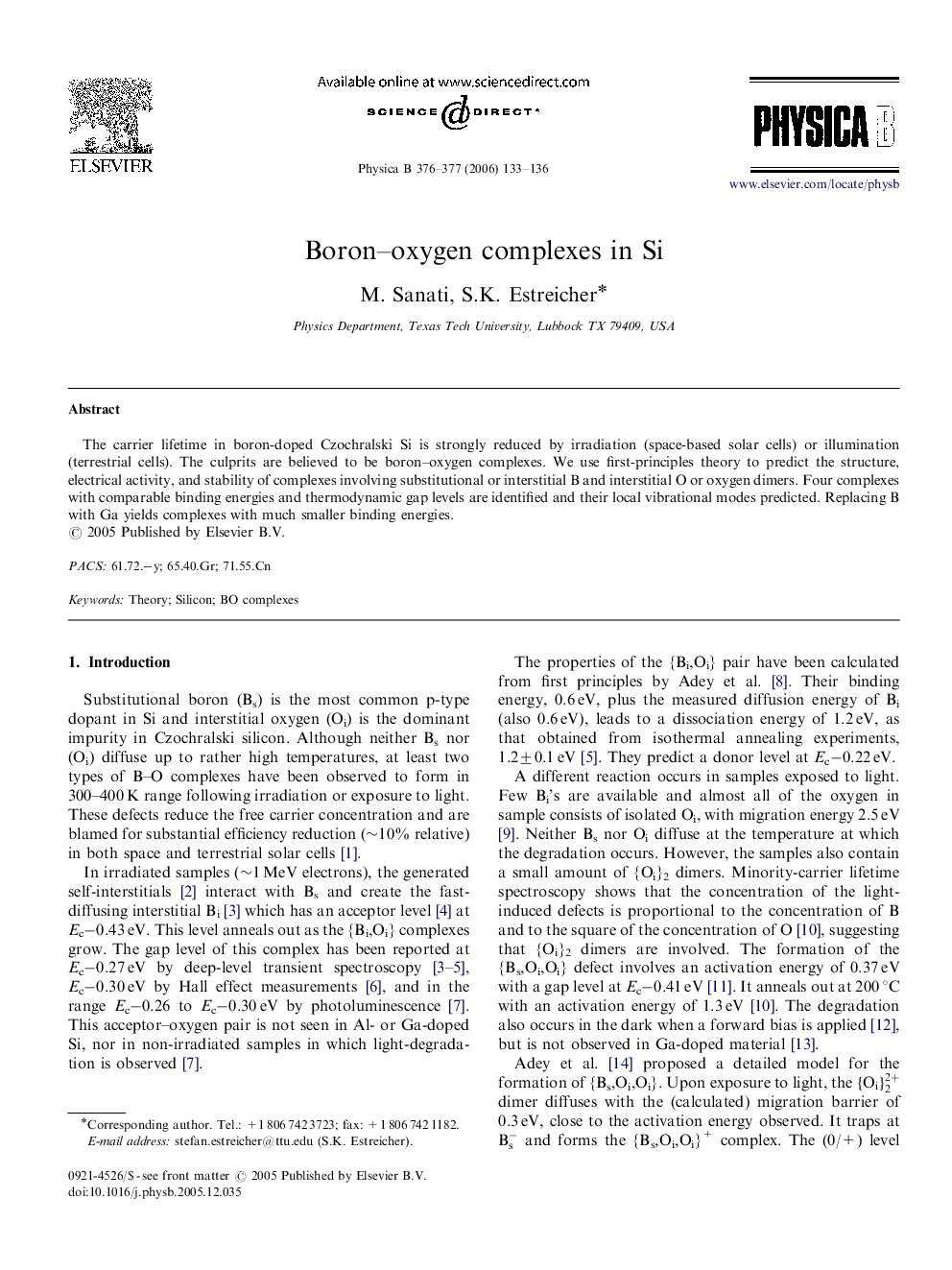| Article ID | Journal | Published Year | Pages | File Type |
|---|---|---|---|---|
| 1816667 | Physica B: Condensed Matter | 2006 | 4 Pages |
Abstract
The carrier lifetime in boron-doped Czochralski Si is strongly reduced by irradiation (space-based solar cells) or illumination (terrestrial cells). The culprits are believed to be boron–oxygen complexes. We use first-principles theory to predict the structure, electrical activity, and stability of complexes involving substitutional or interstitial B and interstitial O or oxygen dimers. Four complexes with comparable binding energies and thermodynamic gap levels are identified and their local vibrational modes predicted. Replacing B with Ga yields complexes with much smaller binding energies.
Related Topics
Physical Sciences and Engineering
Physics and Astronomy
Condensed Matter Physics
Authors
M. Sanati, S.K. Estreicher,
